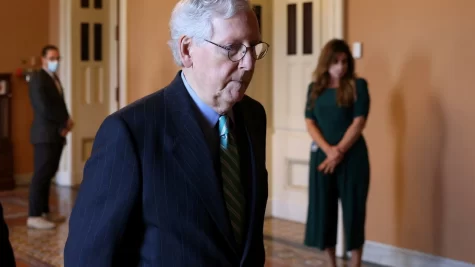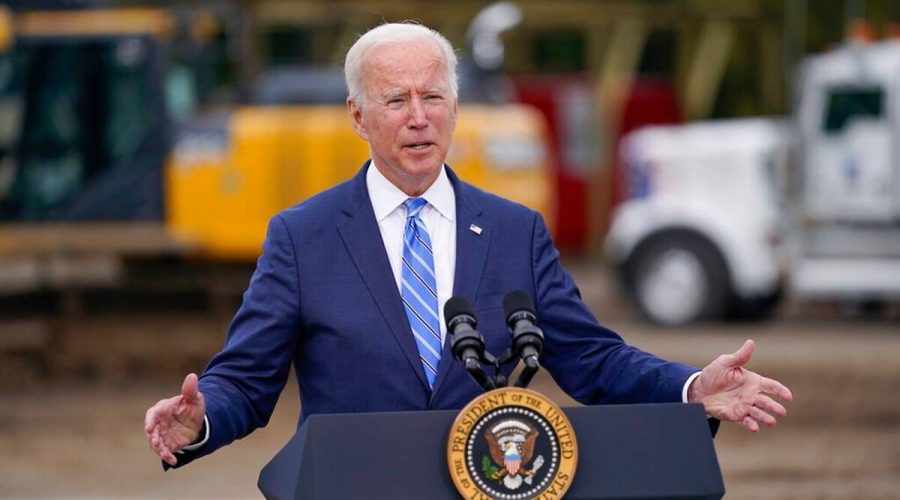US Congress Finds Solution to Debt Default Crisis
Biden said on Tuesday that it was “real possibility” that Democrats might use their current razor-thin majority to drop the Senate’s filibuster Link rule, which requires 60 of the chamber’s 100 members to agree to pass most legislation.
October 19, 2021
Congress has finally come to an agreement on raising the National Debt Limit. The debt limit does not authorize new spending, but acts on previous debts which need to be paid, according to the US Department of Treasury. Many times during US history, the debt limit has been raised bipartisanship, with the most recent exception being during the Bush Administration, when Democrats, including now President Joe Biden, voted against the debt limit increase, according to the NYTimes. This resulted in the US losing its high credit rating, despite raising the debt limit anyways due to how close the country got to defaulting.

The US Debt Limit was raised a total of 78 separate times, 29 times under a Democrat administration, and 49 times under a Republican administration, according to the US Department of Treasury.
Why did it take so long for Democrats, who currently own a weak trifecta in the US government, to pass legislation to suspend the debt limit? While the House of Representatives have approved and sent a bill that will suspend the debt limit until December 2022, the bill requires up to 60 votes, or a super majority to pass. Republicans refuse to help in raising the debt limit, Minority leader and Republican Mitch McConnell said on the Senate floor, “If they want to tax, borrow, and spend historic sums of money without our input, they will have to raise the debt limit without our help.” while Democrats argue that they raised the debt limit three times, under the Trump Administration, according to Reuters.
While Democrats have the power to pass a smaller bill, with a simple majority through reconciliation. However, Democrats refused to do this as they wish to abide by historical bipartisanship. While also pointing out that raising the debt limit isn’t about spending more money, but paying off the previous debt from previous administrations. During the Trump presidency, the US National debt rose by 7.8 trillion during his four years in the White House, according to Newsweek.

If the United States ever defaults on their debt, economic fallout will be felt worldwide. The current recovery from the COVID Pandemic will be reversed, launching the U.S. back into a recession. Up to Six million jobs can be lost as a result nationwide, including a massive drop in the stock market, according to Reuters. As of October 8th, a solution was compromised between the Senate Minority leader, and Senate Majority leader.
Congress had until October 18th, according to Treasury Secretary Janet Yellen, to address the growing crisis while addressing congress two weeks ago


































































